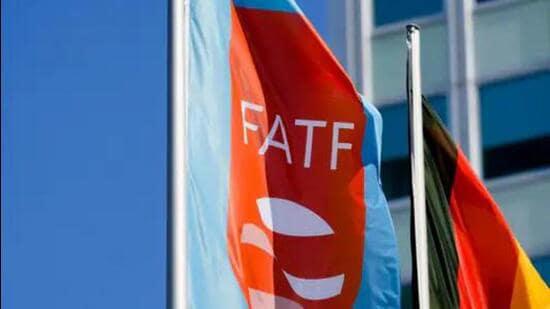
India faces terror threats from ISIL, Al-Qaeda-linked groups around J&K: FATF report
India faces a disparate range of terrorism threats particularly associated with ISIL or Al-Qaeda linked extremist groups active in and around Jammu and Kashmir (J&K), global money laundering and terrorist financing watchdog Financial Action Task Force (FATF) on Thursday said in its evaluation report that certified India’s robust compliance system.
“India faces a disparate range of terrorism threats, categorised into six different theatres. These can be summarised as theatres associated with ISIL or AQ linked extremist groups active in and around Jammu and Kashmir, whether directly or via proxies or affiliates, as well as other separatist movements in the region; other ISIL and AQ cells, their affiliates, or radicalised individuals in India; regional insurgencies in the Northeast and North of India; and left-wing extremist groups seeking to overthrow the government,” it said in its latest report released on September 19.
Out of the 40 stringent evaluation parameters required to check financial crimes (including money laundering and terror financing), India was found fully compliant or largely compliant in 37 of them. It voluntarily needs to scale up in three areas where it is found partially compliant.
The three areas are — non-profit organisations (NPOs), politically exposed persons (PEPs), and regulation and supervision of designated non-financial businesses and professions (DNFBPs).
“As FATF’s mutual evaluation physically conducted last year has placed India in the top category of ‘regular follow-up’ tightening norms for the three partially compliant areas is voluntary. The government will, however, take necessary action for full compliance,” one official directly aware of the development said requesting anonymity.
The report summarises anti-money laundering and anti-terror funding measures of India as at the date of the onsite visit from November 6-24, 2023, so it does not contain several recent measures such as reforms undertaken by the Bharatiya Nyaya Sanhita (BNS).
HT on September 11 reported that India would join FATF’s exclusive club of top performers on September 19, surpassing the US, China, Germany, Japan, and Canada for maintaining higher standards in curbing financial crimes.
The report on India gave the thumbs-up on 37 of 40 parameters, a feat so far achieved by just three members of the G20 – the United Kingdom, France, and Italy.
“India has achieved strong results in its technical compliance with the FATF Standards. The remaining areas requiring significant improvement are risk-based measures to protect NPOs, establishing due diligence requirements on domestic PEPs and supervision of DNFBPs,” the report said.
The non-profit organisations (NPOs) – first among the three areas falling under partially compliant – the report said NPOs that often registered under as charitable organisations enjoying tax exemptions. The report said the system should have adequate measures to address terror funding risks associated with vulnerable NPOs. On PEPs, the report wants the government to address certain ambiguities related to source of wealth, source of funds and beneficial owners.
On the regulation and supervision of DNFBPs, it found some gaps in regulating and monitoring their activities to check potential money laundering and terror funding activities.
“The size of the DNFBP sector in India is relatively large compared to many countries (around 14% of GDP), largely due to the demand for and services relating to precious metals and stones (7% of GDP) and real estate (5% of GDP),” it said.
FATF, the global watchdog on money laundering and terrorist financing, was formed in 1989. It is the apex standards-making body to prevent financial crimes. It makes countries comply to its standards through a rigorous process called “mutual evaluation”.
Its members are 38 countries and two regional bodies – European Union and Gulf Cooperation Council (GCC). Most of the other countries are its part through nine associate member groups. Several multilateral institutions such as the World Bank and the United Nations enjoy observer status.
Source » msn.com





